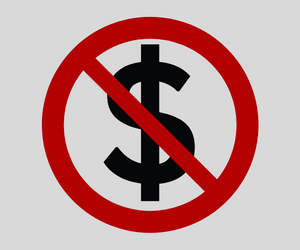Isn't it remarkable that atheists, who did virtually nothing to oppose slavery, condemn Christians, who are the ones who abolished it?
Consider atheist Sam Harris, who blames Christianity for supporting slavery. Harris is right that slavery existed among the Old Testament Jews, and Paul even instructs slaves to obey their masters. During the civil war both sides quoted the Bible. We know all this. (Yawn, yawn.)
But slavery pre-dated Christianity by centuries and even millennia. As we read from sociologist Orlando Patterson's work, all known cultures had slavery. For centuries, slavery needed no defenders because it had no critics. Atheists who champion ancient Greece and pre-Christian Rome somehow seem to forget that those empires were based on large-scale enslavement.
Atheist Michael Shermer says Christians are "late comers" to the movement against slavery. Shermer advanced this argument in our Cal Tech debate in December. That debate is now online, and you can watch it at michaelshermer.com.
But if what Shermer says is true, who were the early opponents of slavery who got there before the Christians did? Actually, there weren't any. Shermer probably thinks the Christians only got around to opposing slavery in the modern era.
Recommended
Wrong. Slavery was mostly eradicated from Western civilization--then called Christendom--between the fourth and the tenth century. The Greco-Roman institution of slavery gave way to serfdom. Now serfdom has its problems but at least the serf is not a "human tool" and cannot be bought and sold like property. So slavery was ended twice in Western civilization, first in the medieval era and then again in the modern era.
In the American South, Christianity proved to be the solace of the oppressed. As historian Eugene Genovese documents in Roll, Jordan, Roll, when black slaves sought to find dignity during the dark night of slavery, they didn't turn to Marcus Aurelius or David Hume; they turned to the Bible. When they sought hope and inspiration for liberation, they found it not in Voltaire or D'Holbach but in the Book of Exodus.
The anti-slavery movements led by Wilberforce in England and abolitionists in America were dominated by Christians. These believers reasoned that since we are all created equal in the eyes of God, no one has the right to rule another without consent. This is the moral basis not only of anti-slavery but also of democracy.
Jefferson was in some ways the least orthodox and the most skeptical of the founders. Yet when he condemned slavery he found himself using biblical language. In Notes on the State of Virginia Jefferson warned that those who would enslave people should reflect that "the Almighty has no attribute which can take side with us in such a contest." Jefferson famously added, "And can the liberties of a nation be thought secure when we have removed their only firm basis, a conviction in the minds of the people that these liberties are the gift of God? That they are not to be violated but with His wrath? Indeed I tremble for my country when I reflect that God is just: that His justice cannot sleep for ever."
But wasn't Jefferson also a man of science? Yes he was, and it was on the basis of the latest science of his day that Jefferson expressed his convictions about black inferiority. Citing the discoveries of modern science, Jefferson noted that "there are varieties in the race of man, distinguished by their powers both of body and of mind...as I see to be the case with races of other animals." Blacks, Jefferson continued, lack the powers of reason that are evident in whites and even in native Indians. While atheists today like to portray themselves as paragons of equal dignity, Jefferson's scientific and skeptical outlook contributed not to his anti-slavery sentiments but to his racism. Somehow Harris and Shermer neglect to point this out.
In the end the fact remains that the only movements that opposed slavery in principle were mobilized in the West, and they were overwhelmingly led and populated by Christians. Sadly the West had to use force to stop slavery in other cultures, such as the Muslim slave trade off the coast of Africa. In some quarters the campaign to eradicate slavery still goes on.
So who killed slavery? The Christians did, while everyone else generally stood by and watched.


























Join the conversation as a VIP Member